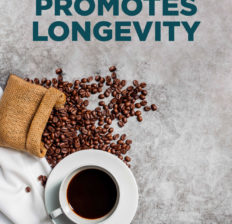This Dr. Axe content is medically reviewed or fact checked to ensure factually accurate information.
With strict editorial sourcing guidelines, we only link to academic research institutions, reputable media sites and, when research is available, medically peer-reviewed studies. Note that the numbers in parentheses (1, 2, etc.) are clickable links to these studies.
The information in our articles is NOT intended to replace a one-on-one relationship with a qualified health care professional and is not intended as medical advice.
This article is based on scientific evidence, written by experts and fact checked by our trained editorial staff. Note that the numbers in parentheses (1, 2, etc.) are clickable links to medically peer-reviewed studies.
Our team includes licensed nutritionists and dietitians, certified health education specialists, as well as certified strength and conditioning specialists, personal trainers and corrective exercise specialists. Our team aims to be not only thorough with its research, but also objective and unbiased.
The information in our articles is NOT intended to replace a one-on-one relationship with a qualified health care professional and is not intended as medical advice.
Study Shows Benefits of Drinking Coffee for Longevity
June 17, 2022

Coffee is one of the most widely consumed drinks in the world, third to only water and tea.
You already know that coffee can boost your energy and focus, but is it possible that coffee can also prolong your life?
Based on recent findings from one study, there do seem to be benefits of drinking coffee for longevity, mostly due to its high antioxidant and caffeine content.
Other research suggests the same. Having between one and four cups per day of coffee — whether black, instant, decaf or even lightly sugar-sweetened — can help protect against some of the most prevalent and deadly chronic diseases, such as heart disease, liver disease, cancer and cognitive decline.
Study Findings: Coffee Can Lower Risk of Death
A 2022 study published in the Annals of Internal Medicine focused on the association between coffee intake and reduced risk for death (all-cause mortality).
This was one of the first and only studies to distinguish between the effects of consumption of sugar-sweetened, artificially sweetened and unsweetened coffee.
From 2009 to 2018, researchers followed over 171,000 adults with a mean age of 55 to record their coffee habits. All participants were free of cardiovascular disease and cancer at the beginning of the study.
Here were the main findings from the study:
- Compared with those who didn’t consume any coffee, consumers of various amounts of unsweetened coffee (between 1 and 4.5+ cups per day) had lower risks for all-cause mortality. Drinking unsweetened coffee regularly in any amount led to a 16% to 21% lower risk of dying during the seven-year long follow-up period.
- Adults who consumed sugar-sweetened coffee also experienced increased protection against death. In fact, drinking lightly sweetened coffee was even more protective than drinking unsweetened coffee drinks. Adults who drank moderate amounts of coffee sweetened with sugar (1.5 to 3.5 cups per day) were 29% to 31% less likely to die during the follow-up period.
- There wasn’t any clear indication that people who regularly consumed artificially sweetened coffee had any greater protection against mortality. (Overall, the pattern was inconsistent.)
The bottom line?
Moderate consumption of unsweetened and sugar-sweetened coffee (only 1 teaspoon of sugar per serving) was associated with lower risk for death. This was true for different types of coffee, including fresh brewed, instant, ground and decaffeinated coffee.
“Moderate consumption” equates to drinking about one to four cups of coffee per day.
What It Means
This study found that greater intake of coffee can help protect against heart disease, cancer and overall risk of death.
Why is coffee potentially life-extending? Based on available research, it’s believed that coffee’s antioxidants and caffeine are mainly responsible for its health promoting effects.
Coffee provides high levels of antioxidants, such as polyphenols, which can help defend against free radical damage that contributes to disease formation and signs of aging. Studies show that polyphenols and other compounds in coffee have antioxidant, anti-inflammatory, anti-cancer, anti-diabetes and antihypertensive properties.
Caffeine, which is naturally found in coffee beans, also has a number of positive effects on health markers, especially for your brain and metabolism. Caffeine can help support a healthy metabolism and body weight by possibly burning more fat, blocking calorie absorption, reducing appetite, boosting willpower and motivation, and giving you more energy for physical activity.
Coffee Consumption Tips
- Don’t go overboard — Stick to about one to four cups per day (8 ounces per cup).
- Go easy on the sugar — If you are going to sweeten your coffee, stick to a small amount of added sugar. In the study described above, adults who drank sugar-sweetened coffee added only one teaspoon of sugar per cup on average.
- Choose organic and light roast coffees — These are highest in beneficial polyphenols and lowest in pesticides and other chemicals used during the growing process.
- Drink coffee as part of a healthy diet — Coffee fits in to just about all diet plans, including the keto diet, Paleo diet, Mediterranean diet and so on. Consider trying the coffee diet if you’re interested in weight loss, which consists of having several high-antioxidant cups per day along with low-calorie foods. You can also drink coffee while doing intermittent fasting.
In case you’re wondering: Drinking coffee vs. tea for longevity, which is better?
There’s solid research suggesting that both coffee and teas (especially green tea, but also black, white and oolong teas) can contribute to a long, healthy life.
Both are high in antioxidants — for example, green tea contains EGCG, which is tied to metabolic and cognitive health — contain caffeine, and naturally have no sugar and almost no calories when unsweetened.
Try enjoying both or sticking with whichever one you enjoy best.
Conclusion
- Does coffee shorten or lengthen your life span? Based on new study findings, experts encourage drinking coffee for longevity. Coffee is full of protective antioxidants and caffeine, which can fight free radical damage and assist in metabolic and cognitive health.
- A 2022 study found that coffee consumed with a small amount of sugar (1 teaspoon) or without any sweeteners at all was protective against death among adults over 55.
- Moderate coffee consumption seems to be best, which is about one to four cups per day. Tea also has many of the same benefits, especially green tea, so feel free to drink both.




